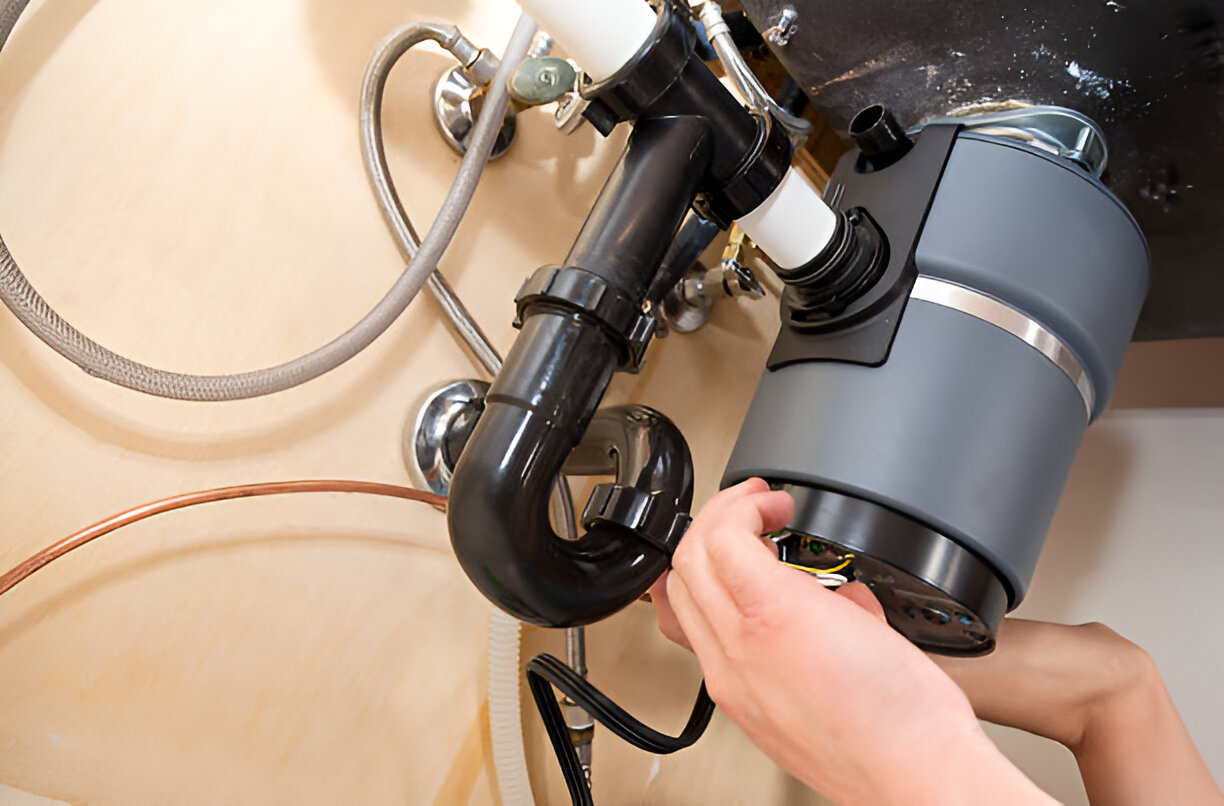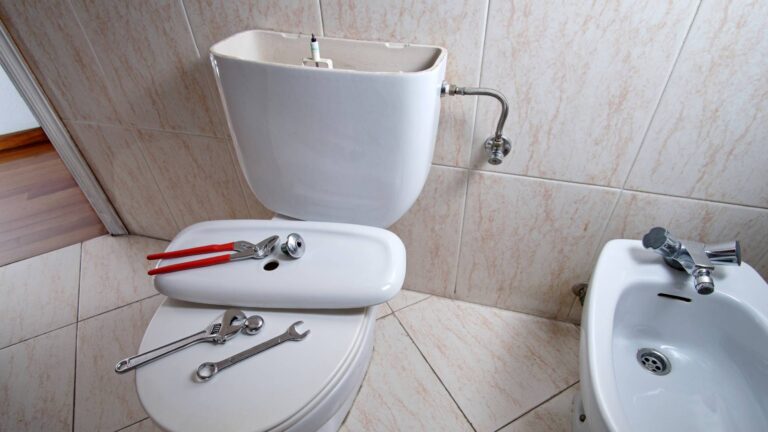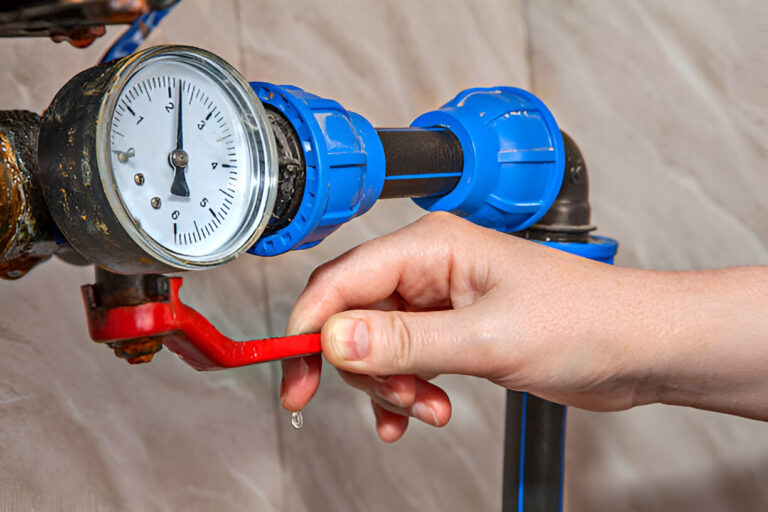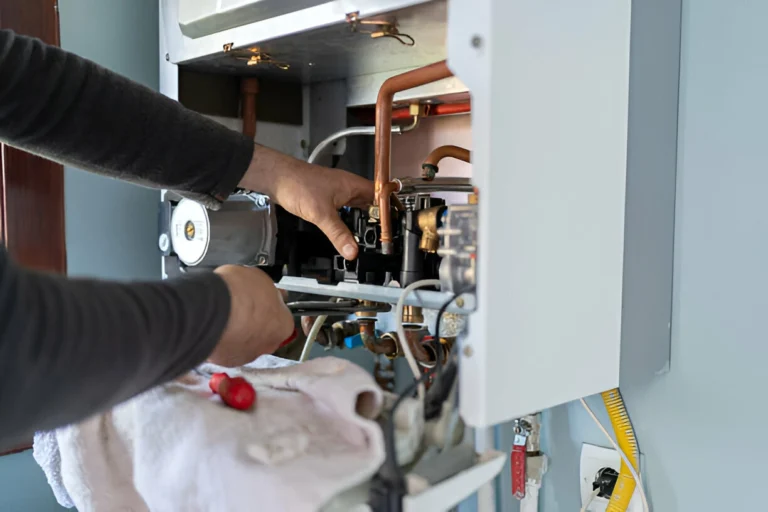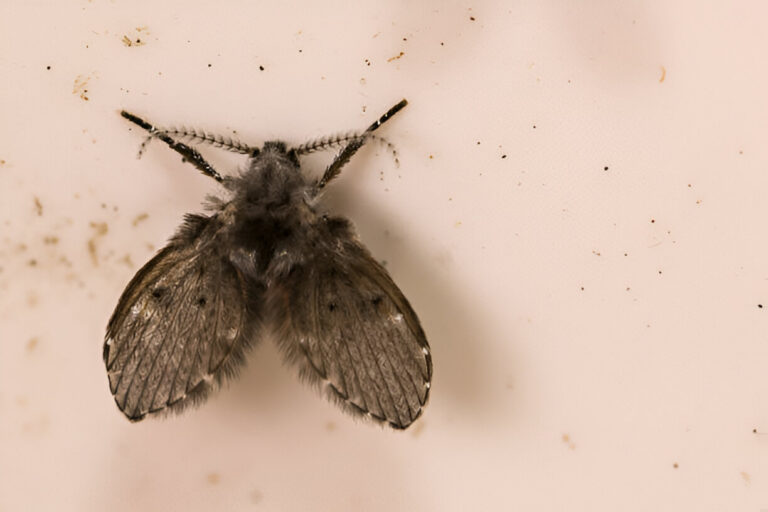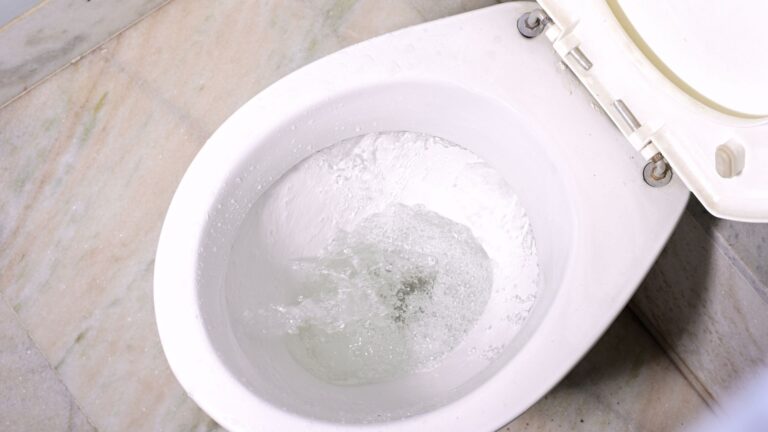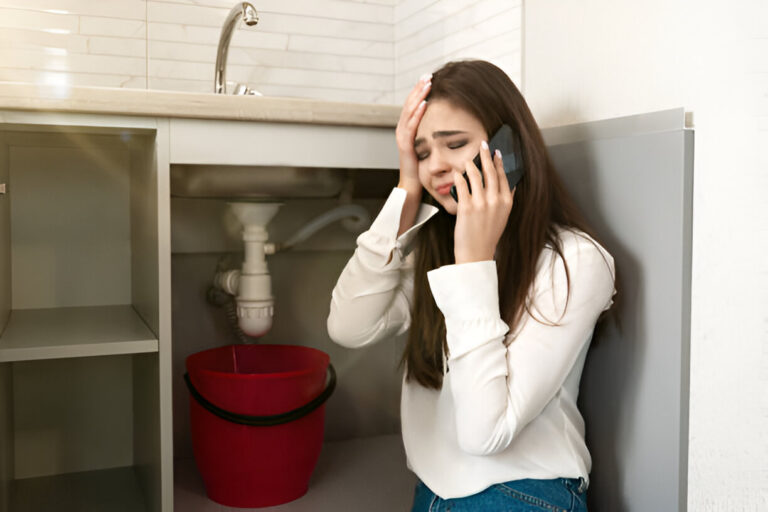Garbage Disposal Not Working?
If you’ve ever flipped the switch expecting that satisfying grinding sound, only to hear silence or a low hum, you know how frustrating it is when your garbage disposal is not working. This kitchen essential is one of the hardest-working appliances in your home. It helps break down food waste, prevents sink clogs, and keeps…
If you’ve ever flipped the switch expecting that satisfying grinding sound, only to hear silence or a low hum, you know how frustrating it is when your garbage disposal is not working.
This kitchen essential is one of the hardest-working appliances in your home. It helps break down food waste, prevents sink clogs, and keeps your plumbing system flowing smoothly. But like any appliance, disposals can fail due to wear and tear, misuse, or underlying plumbing problems.
In this guide, you’ll learn:
- The most common reasons your garbage disposal might stop working
- DIY troubleshooting tips for quick fixes
- When to stop and call a plumber
- Average garbage disposal repair cost and replacement cost
- How Sapphire Plumbing can restore your disposal quickly and affordably
How a Garbage Disposal Works
Before troubleshooting, it’s important to understand what’s happening inside your garbage disposal. Knowing the components can help you identify what might have gone wrong.
- Motor – Powers the spinning plate that breaks down food waste.
- Impellers – Push waste particles toward the grinding ring.
- Grinding Ring – Pulverizes food into small pieces that can pass through your drain.
- Drain Connection – Routes the food slurry into your home’s drainage system.
A garbage disposal blends mechanical movement, electrical power, and plumbing flow, so an issue in any one area can cause failure.
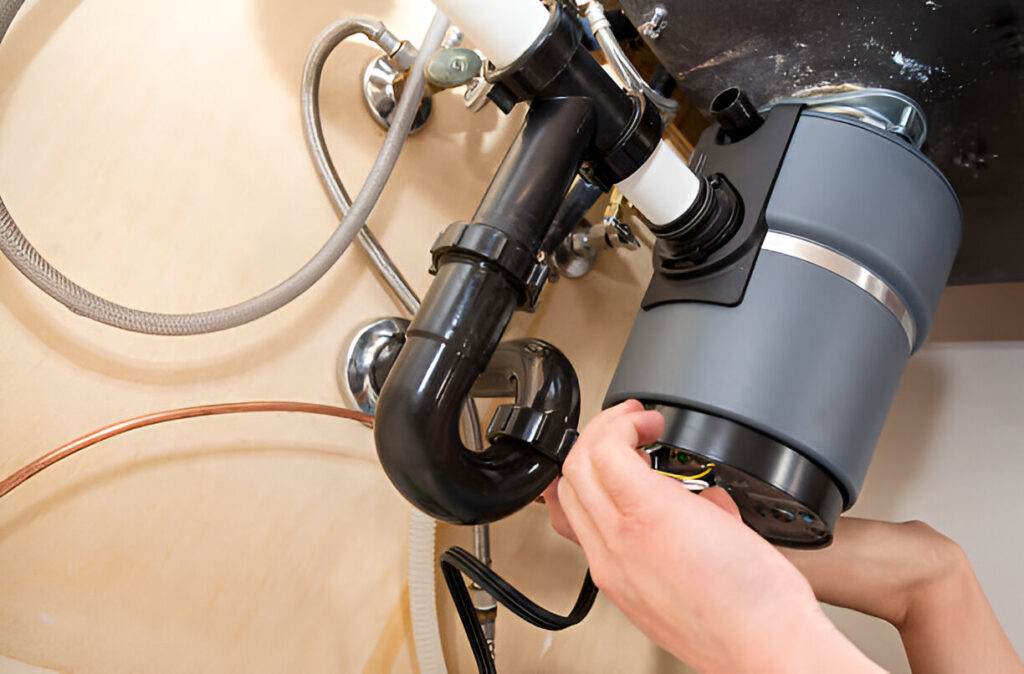
Common Reasons Your Garbage Disposal Stops Working
Problems can range from something as simple as a tripped breaker to complete motor burnout.
Power Supply Issues
Symptoms: No sound or movement when switched on.
Likely Cause: A tripped circuit breaker, unplugged unit, or faulty wall switch.
DIY Check: Make sure the plug is secure, check your breaker panel, and test the wall switch.
Overheating
Symptoms: Disposal suddenly stops during use.
Likely Cause: Overloading with too much waste at once or running the unit for too long.
DIY Check: Wait 10–15 minutes for the motor to cool, then press the reset button underneath.
Jammed Grinding Plate
Symptoms: Disposal humming but not grinding.
Likely Cause: Foreign objects (spoons, bones, corn husks) are wedged inside.
DIY Check: Turn off power, insert a hex wrench into the bottom slot, and manually rotate the plate to dislodge debris.
Clogged Drain Line
Symptoms: Water backs up in the sink, even after the disposal runs.
Likely Cause: Accumulation of grease, coffee grounds, rice, pasta, or fibrous vegetables.
DIY Check: Try a sink plunger or drain snake, avoid chemical drain cleaners as they can damage seals.
Worn-Out Motor
Symptoms: Weak grinding, frequent stalling, or burning smell.
Likely Cause: Age and heavy use have worn down the motor.
Solution: Often requires a garbage disposal replacement rather than repair.
Garbage Disposal Not Working but Humming
If your garbage disposal is humming but not working, the motor is still receiving power, but something is preventing it from spinning.
Possible Causes:
- Food or foreign object jammed inside
- Burned-out start capacitor
- Rusted or seized bearings
- Damaged flywheel
DIY Tip: Unplug the unit, use an Allen wrench to free the flywheel, and press the reset button. If it still hums, you’ll likely need professional service.
DIY Troubleshooting Steps
For homeowners comfortable with light repairs, here’s a safe approach:
- Check the Power – Make sure the plug is connected and breaker is on.
- Press the Reset Button – Usually red and located on the underside of the unit.
- Clear Jams Safely – Use tongs or pliers, never your hands, to remove debris.
- Use the Manual Crank – Insert a hex wrench into the base slot and rotate in both directions.
- Flush with Cold Water – Run cold water before, during, and after grinding food waste.
- Clean the Disposal – Use baking soda and vinegar to break down buildup and odors.
⚠ Caution: If you see exposed wiring, smell burning, or hear loud grinding, stop immediately and call a licensed plumber.
Why Professional Service is Often the Best Option
While a quick reset can solve minor problems, garbage disposals are a mix of high-speed blades, electrical wiring, and plumbing connections, which means:
- Safety Risks: A wrong move can lead to electrical shock or injury.
- Hidden Problems: You might fix a jam but miss a failing motor.
- Leak Potential: Incorrect reassembly can cause leaks under your sink.
- Time Savings: Professionals can diagnose and fix issues in a single visit.
Sapphire Plumbing’s team uses diagnostic tools to pinpoint the exact cause, ensuring a lasting solution rather than a quick patch.
Repair vs. Replacement
Knowing whether to repair or replace depends on age, cost, and damage level.
Repair Makes Sense If:
- The unit is under 5 years old
- The problem is minor (clog, reset, simple part replacement)
- No signs of major corrosion or leaks
Replacement is Best If:
- The unit is 8–10 years old
- The motor is burned out
- Repairs cost over 50% of replacement
- You want a quieter or higher-capacity model
Garbage Disposal Repair Cost & Replacement Cost Table
| Service Type | Average Cost Range | Notes |
| Garbage Disposal Repair | $75 – $200 | Includes unclogging, replacing switches, fixing jams |
| Garbage Disposal Replacement | $150 – $400 | Unit + professional installation |
| Motor Replacement | $100 – $250 | Often more cost-effective to replace whole unit |
| Electrical Repair (Wiring) | $80 – $150 | Switch, wiring, or outlet repair |
| Full Unit Upgrade (Premium) | $400 – $800 | Quiet, stainless steel, long warranty |
Fact: According to HomeAdvisor, the national average for disposal installation is $250–$400, depending on model and labor rates.
How to Prevent Garbage Disposal Problems
Avoid certain foods:
- Grease, oil, or fat (causes clogs)
- Bones and fruit pits (damage blades)
- Fibrous vegetables like celery, corn husks, or onion skins
- Coffee grounds, rice, and pasta (expand in water)
Best Practices:
- Always run cold water during use
- Feed waste gradually, not all at once
- Clean weekly with ice cubes and citrus peels
- Have your plumbing inspected annually
When to Call Sapphire Plumbing
If your garbage disposal is not working, Sapphire Plumbing offers fast, reliable, and affordable solutions.
Why Homeowners Choose Us:
- Over a decade of professional plumbing experience
- Licensed & insured technicians
- Same-day emergency service available
- Honest, upfront pricing, no surprises
- Expertise in garbage disposal repair and replacement
Call Sapphire Plumbing at (469) 981-1871 for expert disposal service today.


